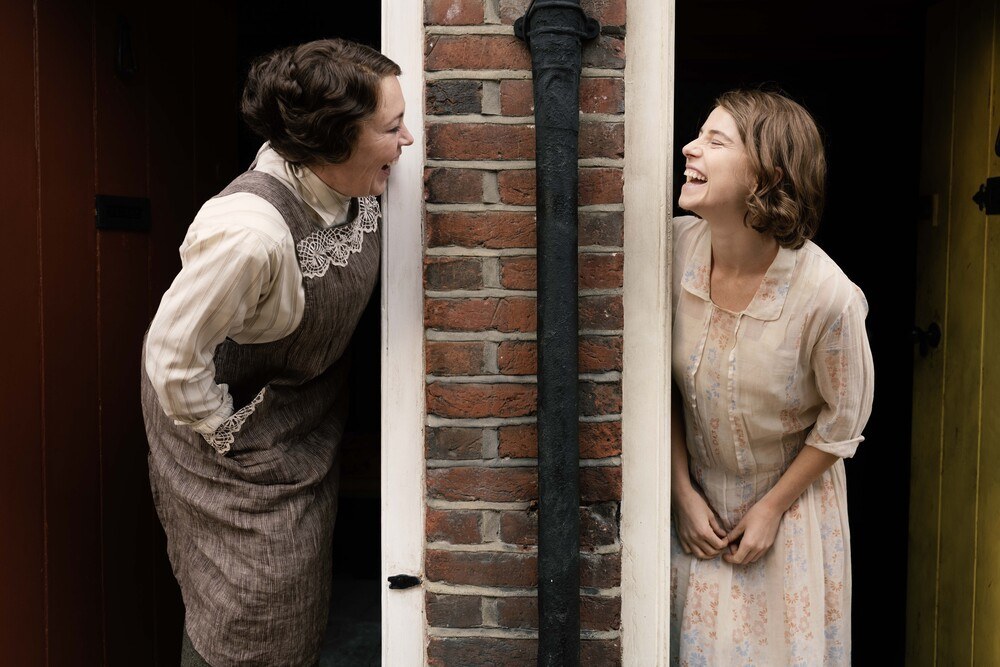Wicked Little Letters

Olivia Colman and Jessie Buckley star in WICKED LITTLE LETTERS. (Photo: Sony Pictures Classics)
Anonymous social-media trolls are probably too self-righteous to recognize themselves in Wicked Little Letters, a mischievous British period piece that sounds like it was written by Quentin Tarantino.
Indeed, for desensitized contemporary moviegoers, the vulgarity is more amusing than offensive in this embellished crowd-pleaser inspired by a true-life, century-old scandal that rocked the misogynistic socks off some otherwise refined villagers.
Despite an esteemed cast in top form, however, this uneven comedy from director Thea Sharrock (The Beautiful Game) squanders an opportunity to be more impactful by only hinting at a deeper sociopolitical subtext.
The story is set in 1920 in Littlehampton, a working-class coastal town where Edith (Olivia Colman) lives in the shadow of her domineering, social-climbing father (Timothy Spall).
He’s become particularly enraged by the recent arrival of a series of profane letters insulting Edith, whose suspicions target free-spirited neighbor Rose (Jessie Buckley), a widowed Irish migrant who recently moved in next door with her young daughter.
Rose is uninhibited and fiercely independent, refusing to be constrained by oppressive patriarchal customs. Edith initially finds those qualities alluring before friction turns their relationship into a neighborhood feud. “She’s what we feared would come after the war,” Edith explains to the police.
With conservative ideals fueling an atmosphere of postwar prejudice, the authorities agree and arrest Rose for libel. She maintains her innocence, but her outspoken demeanor does her no favors. It takes some sleuthing by a female detective (Anjana Vasan) — herself a victim of gender-based subjugation — to mobilize the local women in a quest for the truth.
As the tale of injustice and empowerment evolves into a mystery, Rose is forced to navigate a maze of cloudy motives, shifting loyalties, and knee-jerk preconceptions to clear her name.
The screenplay lacks subtlety in the underlying gender politics — it’s more about poking fun than lambasting the rampant chauvinism of the time.
That approach produces some scattered big laughs but struggles to raise the emotional stakes as secrets are exposed in the final act, even as Buckley and Colman generate hard-earned sympathy for conniving characters looking to break free or express themselves.
Wicked Little Letters ultimately becomes caught between its various themes, tones, and subplots. Its lack of modulation and balance causes the film to write itself into a narrative corner.
Rated R, 100 minutes.